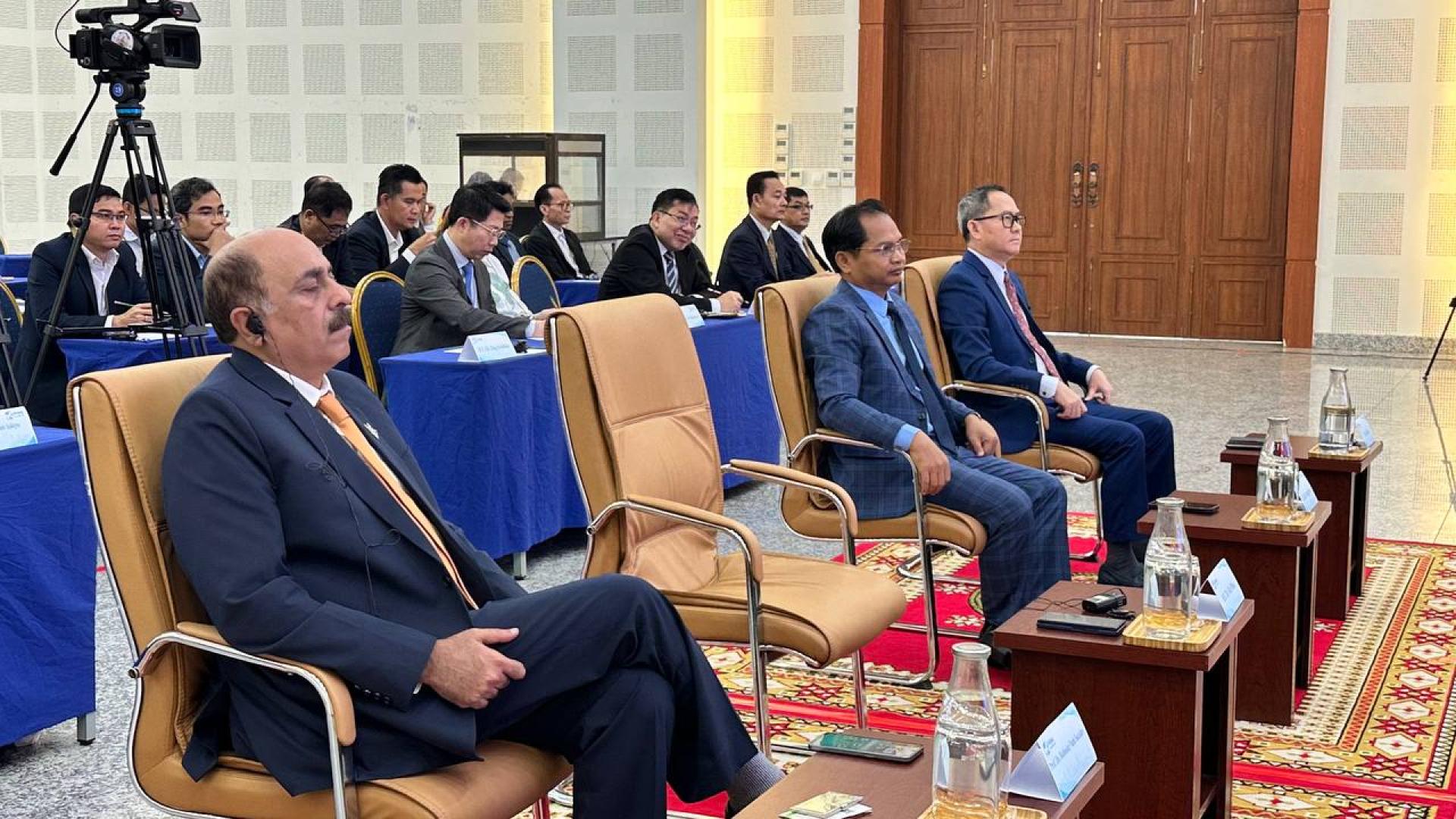(Phnom Penh, 8th — Comprehensive Report) Leading experts, policymakers, and researchers from Cambodia, Germany, India, the Philippines, and South Korea gathered this morning at the Royal Academy of Cambodia to attend the 4th Phnom Penh Forum, conducting in-depth discussions on the theme of “Multilateralism and Unilateralism: Strategic Autonomy and ASEAN’s Political Choices.”
The forum was organized by the Institute of International Relations of the Royal Academy of Cambodia. Guests included Dr. Yang Peou, Secretary-General of the Royal Academy of Cambodia; Dr. Kin Phea, Director of the Institute of International Relations; Mr. Puy Kea, President of the Club of Cambodian Journalists; Professor Rabindranath Saji Dev, Director of the “Imagine India Institute”; and Dr. Chheang Vannarith, President of the Asian Vision Institute, among others.
The forum’s focus centered on how ASEAN, amid intensifying global power rivalry and changing international dynamics, can maintain strategic autonomy between unilateralism and multilateral cooperation, and continue to play a key role in regional stability and cooperation.
Scholars pointed out that during a possible second term for President Trump, the United States would reinforce unilateralism through actions such as withdrawing from international institutions, pursuing trade protectionism, and cutting development aid — moves that have impacted regional cooperation. Meanwhile, China is promoting multilateral cooperation through platforms such as the Belt and Road Initiative, BRICS mechanism, and the Asian Infrastructure Investment Bank, which bring new opportunities but also pose more complex challenges for strategic balance within ASEAN.
Against this backdrop, how Southeast Asian countries can uphold ASEAN centrality, ensure unity and resilience, and prevent external pressure from weakening regional cohesion has become the focal point of the forum’s discussions.
The forum featured three plenary sessions: examining the impact of U.S. policy shifts on the Asia-Pacific security environment and the South China Sea situation; analyzing the process of regional integration under the Belt and Road Initiative, BRICS cooperation, and the Mekong Mechanism; and researching how ASEAN can respond to external intervention and risks of political instability through strategic coordination.
The organizers expressed hope that this year’s forum will produce constructive policy recommendations to strengthen ASEAN’s unity and central role, as well as consolidate ASEAN’s leadership in regional affairs by promoting dialogue and cooperation both within and beyond the region.
